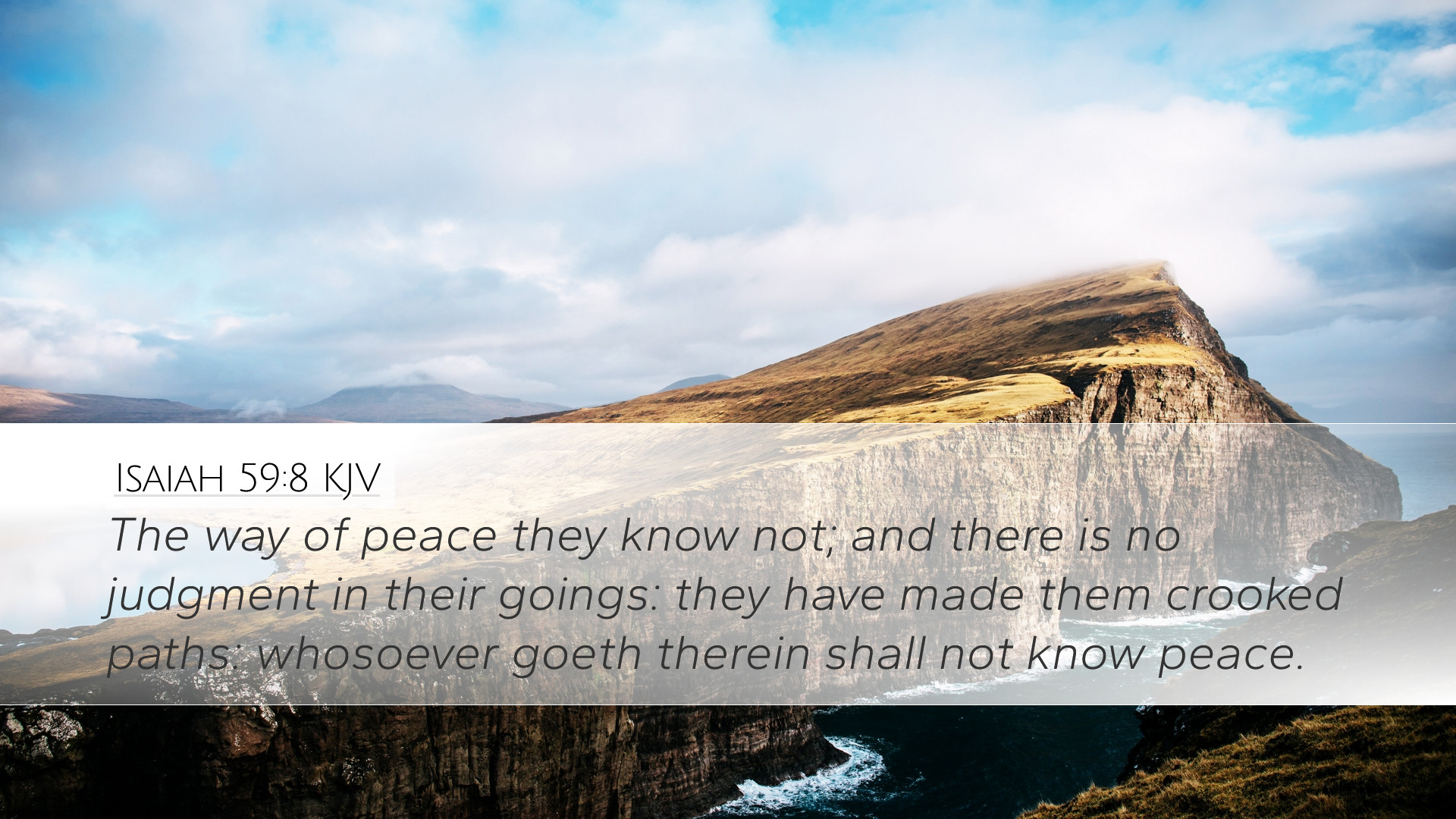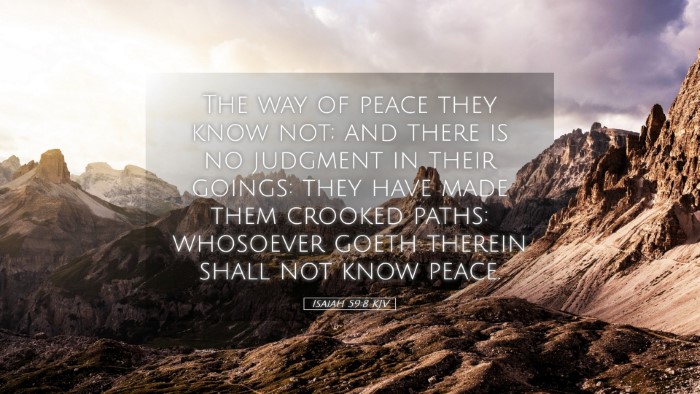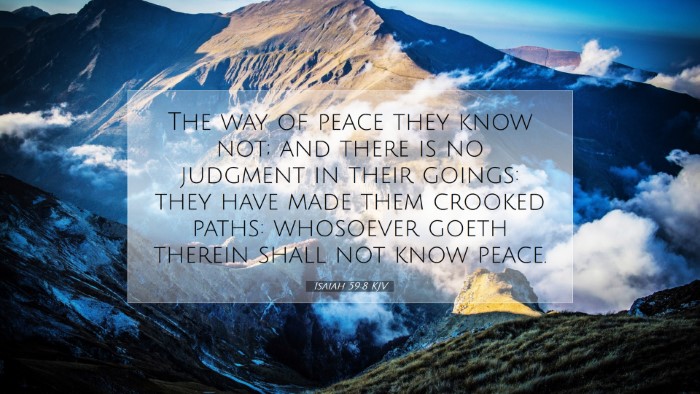Commentary on Isaiah 59:8
Verse: Isaiah 59:8 - "The way of peace they know not; and there is no judgment in their goings: they have made them crooked paths: whosoever goeth therein shall not know peace."
Introduction
This verse from Isaiah captures the essence of the spiritual condition of the people of Israel at the time. The prophet Isaiah highlights the absence of true peace and justice among the people, illustrating a profound moral and spiritual decline. The commentary below integrates insights from various public domain works, providing a rich tapestry of understanding suitable for pastors, students, and scholars.
Thematic Overview
- The Nature of Peace: The verse suggests that genuine peace is not merely the absence of conflict but involves a relationship with God and adherence to His ways.
- Judgment and Justice: The mention of “no judgment” indicates a failure to apply God’s justice and moral standards, leading to societal corruption.
- The Crooked Paths: The metaphor of crooked paths suggests that people have deviated from God's intended way, leading them towards destruction instead of life.
Exegesis and Insights
The Way of Peace
Matthew Henry notes that peace is fundamentally linked to a right relationship with God. He emphasizes that the people of Israel, by turning away from God, have unknowingly abandoned the very essence of peace. According to him, peace is known through righteousness, and without it, people wander in confusion.
No Judgment
Albert Barnes elaborates on the “no judgment” phrase, suggesting that a moral vacuum exists in society when God’s commandments are disregarded. He reflects on how judges, leaders, and individuals alike are responsible when they fail to uphold God’s law, which presents barriers to justice and peace. This absence of judgment leads to a breakdown of social order.
Crooked Paths
Adam Clarke provides a practical reflection on the "crooked paths," stating that these are the result of human choices disconnected from divine direction. They symbolize the choices made that lead one away from God’s wisdom and guidance. Clarke asserts that those who walk these paths are inevitably led to disappointment and strife, as they reject the straightforward guidelines provided by Scripture.
The Implication of the Text
The implications of Isaiah 59:8 extend beyond ancient Israel to contemporary believers and societies. The divine insight articulated by Isaiah resonates profoundly in today’s moral landscape, where many pursue paths devoid of God’s truth, leading to societal turmoil.
Application for Modern Readers
- Understanding Peace: Readers are called to reflect on the nature of peace they are seeking. Is it merely the absence of conflict, or is it a holistic peace found in a relationship with Christ?
- Call to Judgment: As Christians, there is a pressing need to uphold God’s judgment in personal and communal matters. This involves a commitment to morality, justice, and righteousness.
- Avoiding Crooked Paths: The faithful are warned against the allure of worldly paths that seem advantageous but ultimately lead away from God. A constant re-evaluation of one’s direction in life, in line with Scriptural teaching, is essential.
Conclusion
Isaiah 59:8 serves as a poignant reminder of the consequences of abandoning God’s truth in pursuit of falsehoods. It emphasizes the necessity of divine judgment and peace rooted in a genuine relationship with the Creator. The integrative insights of Henry, Barnes, and Clarke illuminate the continued relevance of Isaiah’s message, urging all who read it to examine their own paths and choices in light of God’s Word. In a world rife with confusion and conflict, the pursuit of the true peace that comes from walking in God’s ways is not just desirable, but imperative.


